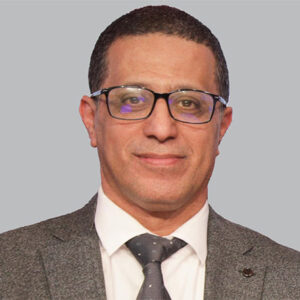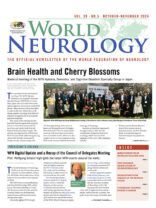Event themed around stroke – a leading cause of disability in Tunisia.

Riadh Gouider
By Prof. Riadh Gouider
The Tunisia World Brain Day event, held on July 10, 2024, in Tozeur under the patronage of the Minister of Health, focused on the prevention of disability which, along with stroke, was theme of the event.
Stroke is a leading cause of disability and mortality in Tunisia. Telethrombolysis, a method that enables the indication and administration of thrombolytic treatments via telemedicine, offers a promising solution for improving stroke management in underresourced areas without access to neurologists. The purpose of this event was to advance understanding and practices related to telethrombolysis and its critical role in stroke care and preventing disability. Speakers included many heavyweights in neurology.
- Prof. Wolfgang Grisold, president of the World Federation of Neurology (WFN), provided an online opening and presented a global perspective on neurology. He also expressed the WFN’s support for initiatives aimed at enhancing neurological care all over the world.
- Prof. Valeria Caso, past president of the European Stroke Organization (ESO) and board member of the World Stroke Organization (WSO), shared international case studies and experiences in telethrombolysis, illustrating the global relevance of this approach.
- Prof. Riadh Gouider, president of the Tunisian College of Neurology and Neurosurgery, detailed recent innovations in telemedicine within Tunisia and their impact on stroke care.
- Prof. Chokri Mhiri, head of the department of neurology at the University of Sfax, presented an update on the current practices and advancements in thrombolysis.
- Prof. Mariem Damak of the University of Sfax, Dr. Habib Haguiga, emergency physician in Tozeur, and Prof. Habiba Mizouni of La Rabta Hospital in Tunis, discussed guidelines and challenges in stroke care in Tunisia and elaborated on the objectives and progress of the telethrombolysis project.
- Prof. Didier Smadja, from Paris, highlighted the urgent need to expand telestroke services through national and international collaborations and the establishment of a telethrombolysis network that would connect health centers across Tunisia with Tunisian and international experts. This network would aim to improve clinical outcomes, reduce disparities in access to care, and promote expertise in neurovascular pathologies among Tunisian neurologists. If this pilot project proves successful, it could be extended throughout Tunisia and potentially to other African countries.
The event also marked the inauguration of a local telethrombolysis pilot project, which is a collaborative effort involving three teams: the Emergency Department of Tozeur, the radiology team from Rabta in Tunis, and the Neurology Department of Habib Bourguiba Hospital in Sfax. •
Prof. Riadh Gouider is co-chair of the WFN Education Committee and past WFN trustee.
